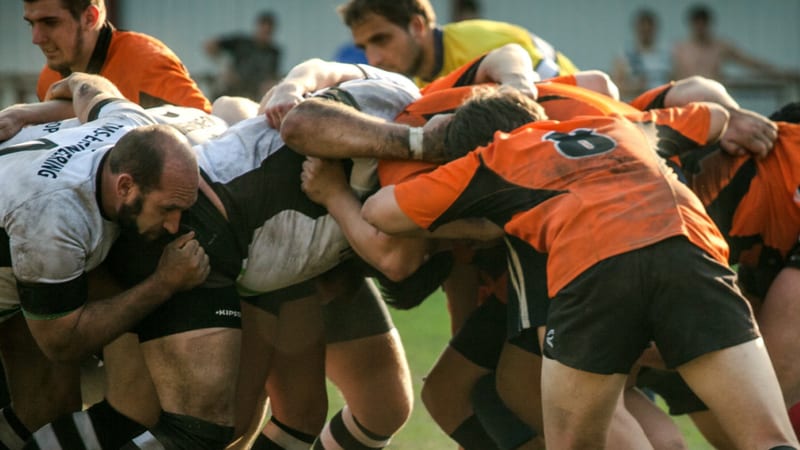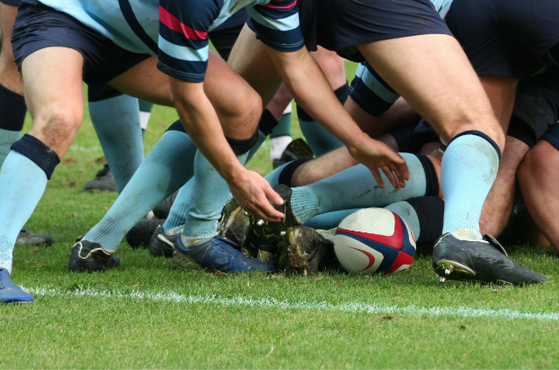Milano Cortina 2026 — key developments shaping the Winter Olympic & Paralympic Games

We explore how structural, environmental and organisational shifts are shaping the 2026 Winter Olympic and Paralympic Games.
Read more
We make the difference. Talk to us: 0333 004 4488 | hello@brabners.com
AuthorsHuzaifa Moosa

It’s an upsetting but real possibility that some who suffer concussions while playing sport could suffer serious long-term health effects and conditions.
In recent years, the topic of concussions and related brain injuries, trauma and neurodegenerative conditions has become a mainstay on the agenda for how statutory, regulatory and governing bodies can protect the welfare of sportspeople.
Here, Huzaifa Moosa explores why and how sportspeople can take proactive steps to ensure that their personal affairs are managed by those they trust in case they are no longer able.
CTE (Chronic Traumatic Encephalopathy) refers to damage to the brain (including brain tissue and brain cells) caused by repetitive concussive and sub-concussive blows. Unfortunately, the only current way that a CTE diagnosis can be confirmed is with an autopsy, where neuropathologists examine the brain of a person after they have died.
Research into CTE has found connections with other conditions, including Alzheimer’s Disease, Parkinson’s Disease, motor neurone disease (MND) and early-onset dementia.
It’s widely accepted that participants in ‘contact sports’ like rugby, boxing and football are more likely than the general population to suffer from CTE and neurodegenerative conditions.
A study conducted by the University of Glasgow found that rugby players were more than twice as likely to be at risk of dementia, three times as likely to be at risk of Parkinson’s Disease and 15 times as likely to be at risk of MND or amyotrophic lateral sclerosis (ALS) than the general population.
In December 2023, a group of 475 sportspeople (450 rugby union and league players and 25 footballers including former internationals, semi-professionals and amateurs) sought permission from the High Court to bring group litigation against the respective sports’ governing bodies for alleged duty of care failings towards players in relation to permanent injuries caused by repetitive concussive and sub-concussive blows.
The underlying claim alleges that the sports’ governing bodies were aware (or ought to have been aware) of the likelihood of the long-term neurodegenerative impact of CTE.
CTE-related class action lawsuits aren’t unique to England and Wales (or even to rugby). A claim was brought by more than 70 former players against the Australian Football League (AFL) — the governing body for Australian rules football — for alleged negligence dating back to 1993. Another claim worth $70m USD was settled with the National Collegiate Athletic Association (NCAA) by current and former American college athletes (including American football, ice hockey and ‘soccer’ players). Former National Football League (NFL) players also settled a claim for an estimated $1bn USD after alleging that the NFL had concealed and denied the dangers of repetitive head impacts since the 1950s.
It's understood that a group of former footballers are in the process bringing a claim against domestic football associations in England, Northern Ireland, Scotland and Wales, as well as the International Football Association Board (IFAB) for purported negligence and failure to protect players from concussion and related brain injuries, trauma and neurodegenerative conditions. The claims are said to include “failure to reduce the amount of heading in training and matches, failure to monitor and treat suspected concussions with the use of independent doctors and failure to enforce adequate return-to-play protocols”.
Most neurodegenerative conditions and diseases can have serious debilitating effects on a person’s physical and mental capacity and may result in them being reliant on others.
Most people assume that their spouse, parents or children have an automatic authority under law to make relevant decisions. However, this is not the case. Sportspeople would be well-advised to appoint someone trustworthy to make decisions on their behalf in the event that they are unable to do so.
This is where a Lasting Power of Attorney comes into play. This is a legal document that lets you appoint someone — usually a family member or close friend — to act as your attorney(s) and make decisions on your behalf when you no longer have capacity to make your own decisions. The document can include guidance to restrict your attorney(s) abilities or set your preferences. Your attorney(s) are required by law to act in your best interests.
Many financial institutions won’t accept the authority of a loved one to manage your finances (for fraud and protection reasons) unless they have been legally appointed as an attorney.
A Lasting Power of Attorney for property and financial affairs can allow your chosen attorney(s) to make decisions relation to your finances, including managing your bank accounts or investments, paying bills, managing your property or applying for benefits (if needed).
A Lasting Power of Attorney can allow your chosen attorney(s) to make decisions in relation to your medical treatment and appointments, daily routine, diet and care/nursing homes and facilities.
They also allow your attorney(s) to make decisions on whether life-sustaining treatment should be continued (for example, whether a ventilation or life-support machine should be withdrawn). You may choose not to give your attorney(s) this power. In the absence of a Lasting Power of Attorney, the final say will be with the doctors. While doctors do consider the views of loved ones, they aren’t bound by them. If you would rather the decision be made by you, now — instead of by doctors or your attorney(s) — this is also possible.
It’s important for all of us — including sportspeople — to take proactive steps to protect our affairs.
If we’re affected by a brain injury or neurodegenerative condition and are no longer able to manage our own affairs or make our own decisions, it’s important that those we trust to do so have the legal scope and recognition to support us.
If you need legal advice or assistance in preparing and implementing relevant documents to ensure that appropriate people are appointed to manage your affairs when you are no longer able, talk to our expert private client team.

We explore how structural, environmental and organisational shifts are shaping the 2026 Winter Olympic and Paralympic Games.
Read more

We examine the consequences of Palou’s defection and the wider lessons for businesses negotiating contracts with athletes or other high‑value individuals.
Read more

We explore how World Rugby’s newest reforms are reshaping the sport and what they mean for clubs and governing bodies ahead of the 2026 Six Nations.
Read more